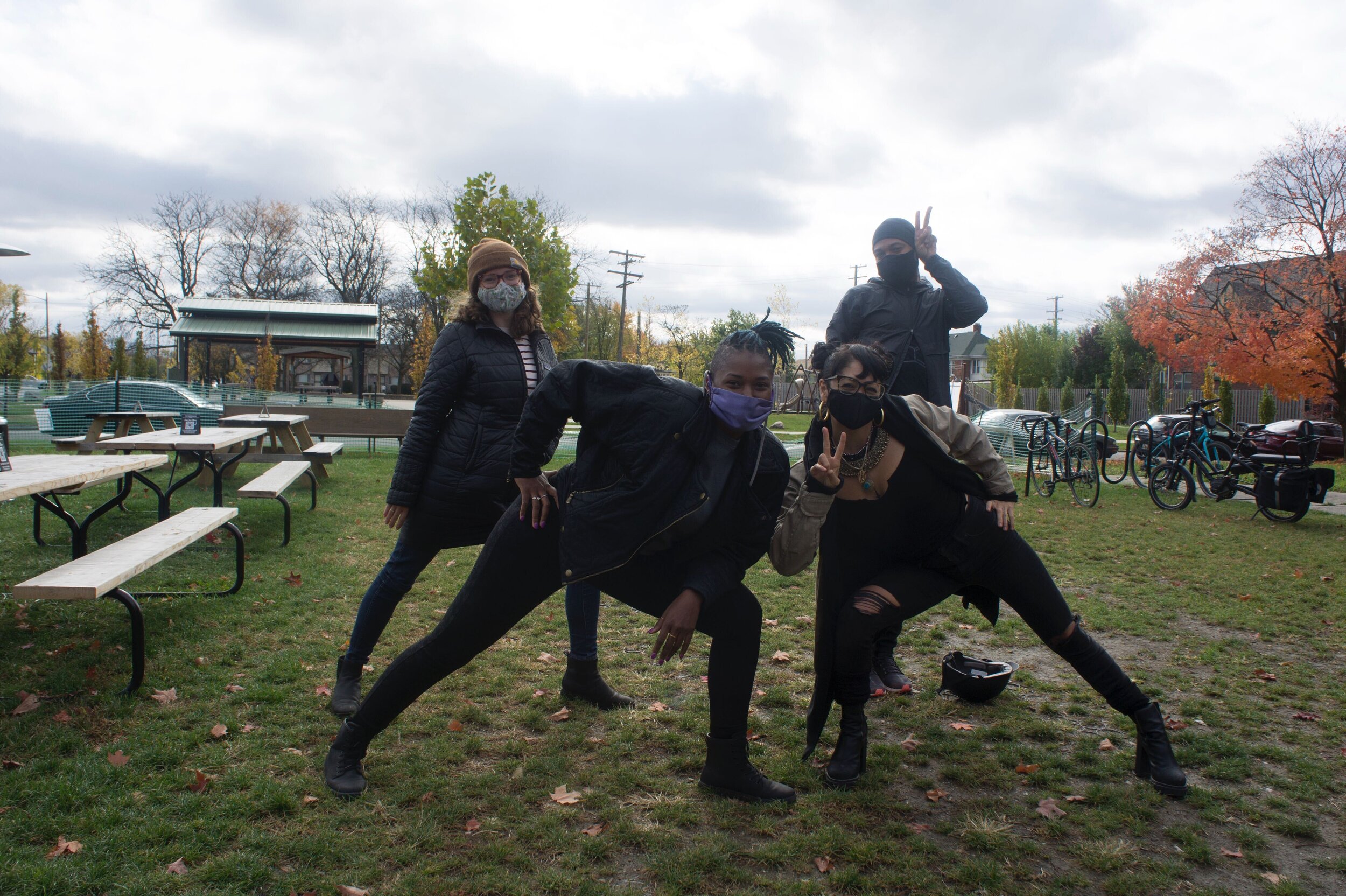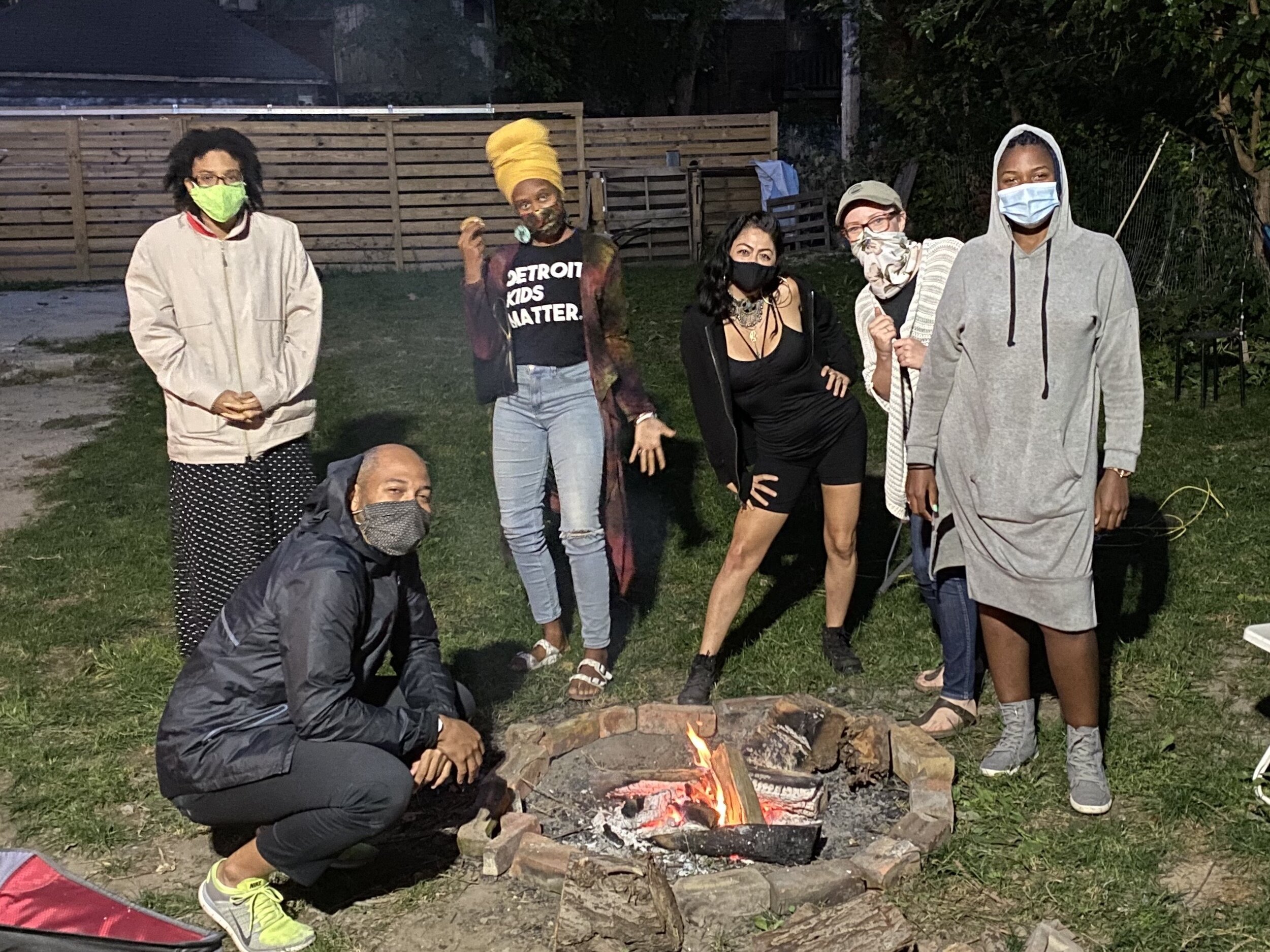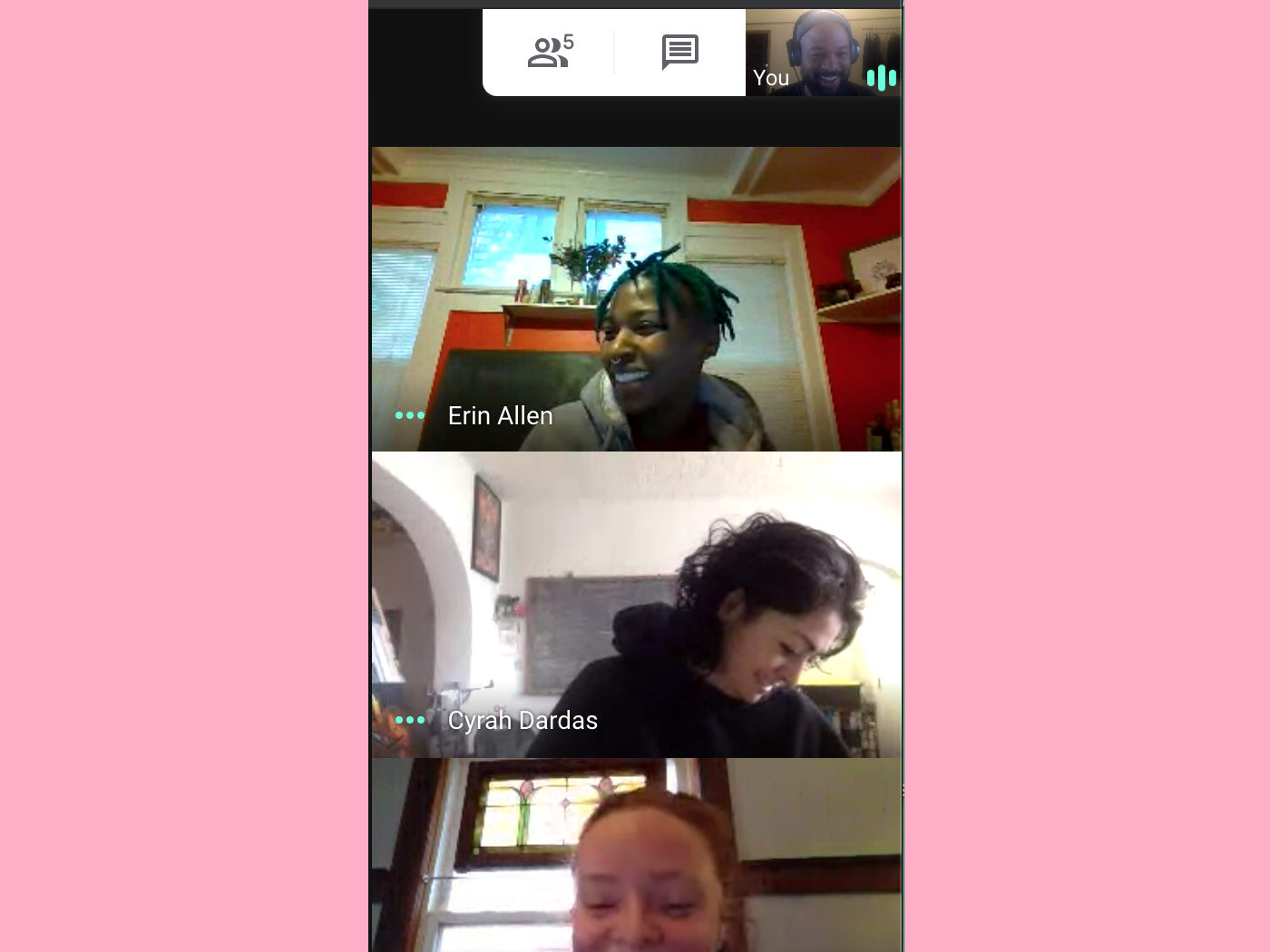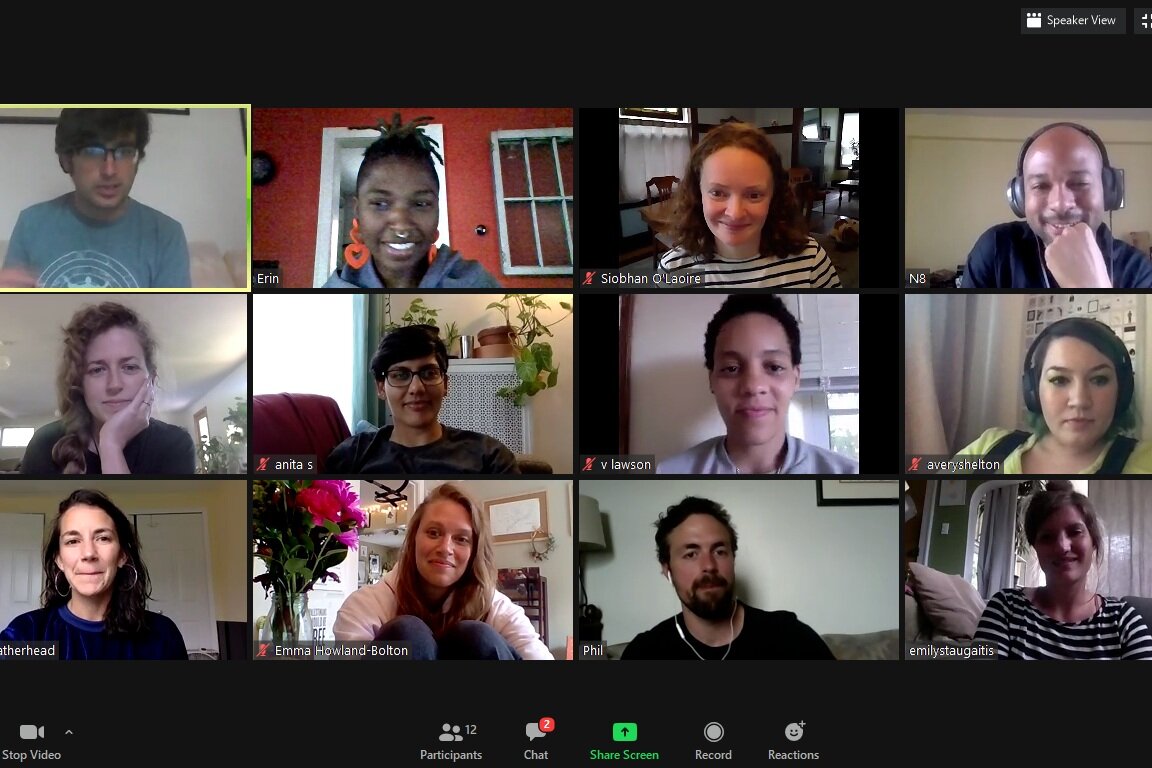The transition from one year to the next is always a time of reflection, and 2020 is incredibly ripe for such a practice. As we look back on the last twelve months of relentless change, it's mind boggling to think of where we have been and with so much loss, what we have created.
January 2020, PIE Board Retreat
While navigating the uncertainty and grief of COVID-19, we answered what felt like an intuitive call to tap into our resilience and innate aliveness. As a team, we moved with each other in new ways, both interpersonally and programmatically. We produced new resources and media that met the needs of the moment for both ourselves and our community.
We are grateful to be in relationship with people and spaces with whom we can create and change together.
Even at distance, we tried on new types partnerships: We worked with Emergent Strategy Ideation Institute to write a Guide to Emergent Strategy Immersions and with Urban Neighborhood Initiatives to support their youth development programs.
In 2020, we’ve seen PIE change as an organization as well. We invested time and energy to effectively transition our programming online. Our mission both broadened and sharpened from humanizing schooling to humanizing learning. We set yet a new standard for putting out our media projects. With all of this pivoting, we wrap up this year reflecting on what guided us through:
COMMUNITY AS CARE
In 2020, community care has been our north star. We felt this as a team, relying on weekly meetings to check-in and be together despite our [social] distance. Our journey with Rida Institute educators exemplified this over the year as well, as we created a slack community and moved to gathering online. Leaning on our relationships -- old and new -- we remembered that we were in this together.




“I believe art is an important part of social justice because its a way to communicate a message without saying a word”
IMAGINING ANEW
The past 9 months have required us to examine and rethink our work. We must be the change needed to humanize learning, but we must see the change first. We must dream possibilities into reality. Art and media making are key to inspiring the creative imagination needed to do so. Our work with 482Forward Youth Collective and Alternatives for Girls are prime examples of what imagining police-free, student-centered schools with nourishing resources for humans could look like. Return to some of our 2020 media below:
POSSIBILITY THROUGH COLLABORATION
2020 has reiterated our inherent need for connection and our sacred interdependence. It was through collaboration between PIE team members and with community partners that we experienced a profound sense of possibility in this moment of uncertainty. From working with our committed Artist-in-Residence partners to planting seeds at the Allied Media Conference, we found that our work was not only still possible, but vital to managing all that 2020 has brought to our lives. Without our partners reminding us that we are our own greatest resource, we could never evolve as we have thus far. See some of our favorite (r)evolutionary moments from 2020 below:
TEAM CHANGES AND CELEBRATIONS
Our team continues to change and evolve in beautiful ways. This year, we welcomed Kiarra Ambrose as our first ever Rida Institute Facilitation Fellow. Kiarra supports Rida programming and participants in a role we hope will evolve and multiply as we seek to train and mentor more compassionate, purpose-driven educators. Cyrah Dardas, a teaching artist of 2 years at PIE, was promoted to Lead Teaching Artist with our Artist in Residence program. Check out some of the media projects she has led here. We also had the pleasure of sending PIE media intern, Tulani Pryor, off to begin a Master’s program in the University of Michigan School of Information! And it is with congratulations and sorrow that we say bye for now to Erin Allen, who will depart from her role as PIE Communications and Fundraising Coordinator at the end of the year. She will remain a close friend to PIE, as she continues to forge her way in the world of radio and podcasting as the producer of Stateside with Michigan Radio. We are overjoyed for Erin and can't wait to hear her creations on the radio waves.
forging ahead to 2021
This year has been unpredictable and flat out difficult. We’ve been reminded to stay human and tender, to lean into what makes us feel alive in order to stay alive, to create and evolve and to rest. As we look ahead to 2021, PIE’s 10-year anniversary, strangely it feels right that 2020 has been so packed. It’s set us up for reaching even further back to 2011, when Detroit Future Schools first began imagining the radical future of learning.
Onward with love,
People of PIE









